The University of Houston College of Education is welcoming seven new faculty members in fall 2020.
The professors, coming to Houston from across the country, said they were drawn to UH for the expansive research opportunities, the collaborative environment and the College’s commitment to equity.
While the pandemic has created many challenges, the professors said they are ready to apply lessons learned about remote teaching to their work ahead.
“Our new faulty bring a strong commitment to ending educational inequities in particular,” said Bob McPherson, dean of the College of Education and Elizabeth D. Rockwell Chair. “While they are joining the College at an unprecedented time, their research is more important than ever.”
Meet the new faculty:
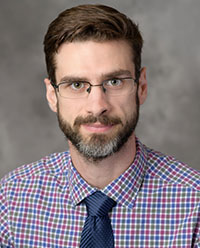
Blake Allan
Associate Professor and Training Director
Counseling Psychology
Department of Psychological, Health, & Learning Sciences
Education: B.A., honors specialization in psychology, Western University; Ph.D. in counseling psychology, University of Florida
Most recent job: associate professor and training director of counseling psychology at Purdue University
What drew you to UH?
Being able to join a strong counseling psychology program in a diverse city that’s an excellent fit for my research. I’m also excited to join a growing university focused on innovative research. Plus, I hate snow.
What are your research interests/areas of expertise?
I study what it means to have a “bad” job and how poor-quality work affects people’s well-being. I’m also interested in the systems that determine who is underemployed and has unstable or low-wage work. On the other side, I’m interested in what makes work meaningful and fulfilling.
Can you share a little about your background?
I grew up in a small town near Ottawa in Canada but lived in Vancouver after I graduated from Western University. At the time, I wanted to become a therapist, so I left Vancouver to get my Ph.D. in counseling psychology at the University of Florida. In graduate school, I became passionate about research, specifically how people experience meaningful work. But when I started working as an assistant professor, I became more interested in why so many people had poor-quality jobs and felt my research would make more of a difference in this area.
How has COVID-19 impacted you as an educator?
Because of my administrative roles, I have not taught during the COVID-19 crisis. However, I have reflected on how the crisis has exposed and exacerbated existing social inequities. This has led me to consider my own roles and responsibilities within higher education and how we can work together to better address social injustice.
What do you do to unwind after a long day?
After a long day I like to unwind with some good TV and sushi. When I have more free time, I like hiking, reading, homesteading, watching football, baking and exploring new things.
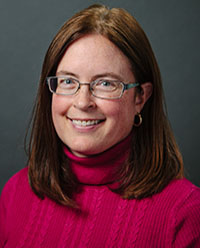
Julie Dunsmore
Professor
Human Development & Family Studies
Department of Psychological, Health, & Learning Sciences
Education: B.A., psychology, Emory University; Ph.D., developmental psychology, Duke University; postdoctoral fellowship, North Carolina State University
Most recent job: associate professor of psychology at Virginia Tech
What drew you to UH?
I was drawn to the opportunity to join a multidisciplinary community of colleagues whose work addresses human development. I found the Psychological, Health, & Learning Sciences Department’s focus on reducing health and educational disparities at multiple levels especially appealing. It was also important to me to be part of a university that emphasizes having an impact in the local community. And Houston is a great city, which was also a notable draw!
What are your research interests/areas of expertise?
I’m interested in how children learn about emotions and develop emotional skills through relationships with important people in their lives, such as parents, friends, grandparents and teachers. My research shows that beliefs about emotions, reactions to emotions and conversations about emotions in these relationships influence children’s adaptive outcomes, such as psychological adjustment and prosocial behavior. I consider how these processes take place across socio-cultural contexts, for example by studying beliefs about emotions among African American, Lumbee American Indian and white American parents.
Can you share a little about your background?
I was born in Oak Ridge, Tenn., and grew up in various places across the Appalachian region of east Tennessee and southwest Virginia. My grandmother and mother were teachers, so a career in education was always something I considered.
What do you do to unwind after a long day?
I enjoy biking, cooking and quilting. I also enjoy mystery and sci-fi books and shows and just hanging out with my three cats.
How has COVID-19 impacted you as an educator?
I’ve been learning how to foster connection that promotes learning and effective work through online platforms — recognizing what works in person versus what works online. I’ve been setting up touchpoints to help students stay on track for larger assignments; using brief video explainers as well as written handouts to help students understand coursework; and taking advantage of grouping functions so students can work collaboratively over time in smaller groups within a larger class. I’m trying to be intentional and proactive by linking the learning goals for the course to the activities the students will be asked to engage in and strategizing ahead of time about how to best support students with different styles, needs and circumstances.
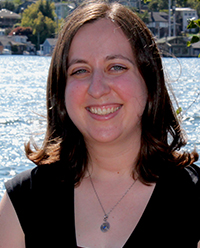
Allison Master
Assistant Professor
Measurement, Quantitative Methods and Learning Sciences
Department of Psychological, Health, & Learning Sciences
Education: B.A., psychology, Yale University; M.A., developmental psychology, Stanford University; Ph.D., developmental psychology, Stanford University
Most recent job: research scientist at University of Washington
What drew you to UH?
The department was looking for someone who studies motivation, identity and/or STEM education. When I first read the job posting, it felt like it was written exactly for me! I am so excited to be at a diverse institution that makes an explicit commitment to equity in education. I can’t wait to learn from my colleagues and students.
What are your research interests/areas of expertise?
I study motivation and identity in students from preschool through college, using experimental and survey methods. I’m interested in improving equity in education through psychological interventions. My previous studies have helped students feel a greater sense of belonging in their classes or affirm important values. These activities are often especially helpful for students of color, who worry they will be judged negatively in school based on their social identities.
I also do research on growth mindsets, which are beliefs that personal characteristics can change. These beliefs can help students focus on learning and stay motivated through challenges. My most recent research projects are aimed at counteracting stereotypes to get girls more interested in computer science.
Can you share a little about your background?
I grew up in the mountains in Asheville, N.C. My mother was a preschool teacher, and I loved volunteering in her classroom. I still love getting to work with children, but I decided to get a Ph.D. to use research to help students on a larger scale.
What do you do to unwind after a long day?
I love to read books, especially fantasy and sci-fi novels, and play board games with my husband and two kids, ages 7 and 5. We’ve been reading a lot of “Harry Potter” and building a lot of Legos this summer.
How has COVID-19 impacted you as an educator?
I wasn’t teaching this spring, but I helped my young children with their online learning. I was aware of our privilege and became concerned about the learning and well-being of young children with fewer resources and opportunities. I hope my lab at UH can conduct research that informs policy making and helps reduce opportunity gaps for students. For example, some of my previous studies found that preschool children are more motivated in STEM when they feel connected to other people, even when they’re working alone. One of the next steps for this research could be to identify cues that help students feel most connected to one another during online learning.
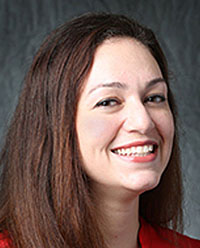
Melissa A. Gallagher
Assistant Professor
Mathematics Education
Department of Curriculum & Instruction
Education: B.A., economics and elementary education, College of William and Mary; M.A., international education, George Washington University; Ph.D., teaching and teacher education, George Mason University
Most recent job: assistant professor of mathematics education, University of Maine at Farmington
What drew you to UH?
UH is a Hispanic-Serving Institution, which was a real draw for me because of my background growing up in El Salvador and my experience as an elementary teacher and math coach working with Latinx immigrant students in the suburbs of Washington, D.C. I knew that the faculty in the Department of Curriculum & Instruction were committed to equity work in education and it seemed like a place that would support my research and have good collaborators.
What are your research interests/areas of expertise?
My work is centered around supporting mathematics teachers to foster growth in all their students, especially students from culturally and linguistically diverse backgrounds. I love helping them explore the deeper concepts underlying the procedures they know and learning new ways to present these ideas to students.
Can you share a little about your background?
My father was a foreign service officer, so I grew up abroad in Liberia and El Salvador. This fostered a love of travel and learning about other cultures and languages. After college, I was an elementary teacher and K – 6 math coach in Virginia. I have taught abroad in Kenya, Ethiopia and Bangladesh and spend a week each summer doing professional development with teachers in rural Guatemala.
What do you do to unwind after a long day?
I love to go for long walks with my husband in the evenings. We enjoy playing board games, watching TV and hanging out with our dog, Precious.
How has COVID-19 impacted you as an educator?
All my students were either practicing teachers or administrators in schools who had to quickly shift to online instruction and find ways to support students in rural Maine, many without resources at home. I needed to shift my focus to support my students as they found new ways to support their students. This entailed many one-on-one Zoom meetings to help them deal with the emotional turmoil, validate their efforts and brainstorm new solutions. I am so impressed with the ways teachers have shifted on a dime to support students.

Miguel Burgess Monroy
Clinical Assistant Professor
Bilingual Education
Department of Curriculum & Instruction
Education: B.A., psychology, University of Arkansas; M.A., teaching ESL, University of Central Missouri; Ph.D., curriculum and instruction, Texas A&M University
Most recent job: research associate at Texas A&M University
What drew you to UH?
I have a strong background working with teacher candidates and beginning teachers in Houston. I was a bilingual teacher and principal in the local area where many of our pre-service teachers will work. When I heard about the position, it seemed like a perfect fit, and meeting the students and other faculty confirmed it.
What are your research interests/areas of expertise?
I research minority teacher recruitment and retention in the context of the U.S. minority teacher shortage. I especially focus on school culture factors that influence retention.
Can you share a little about your background?
I was born in Mexico City but moved to Texas when I was in primary school. I returned to Mexico City frequently for both business and pleasure. I am a single dad and have two college-age sons. I worked for a local school district as a teacher and principal for 18 years before finding time to finish my Ph.D. Devoting a life to serve others has always been important to me.
What do you do to unwind after a long day?
I work out every day, play tennis and baseball, and run with my Labrador Retriever. I come from a musical family, so I play guitar and sing as well.
How has COVID-19 impacted you as an educator?
I was working on a research project related to online learning and testing when the pandemic broke out and this highlighted Texas’s digital divide. One district was able to provide MacBook Pros to every student while other districts completely lost contact with their students who had no digital access, which is a reason why I strive for social justice in education.
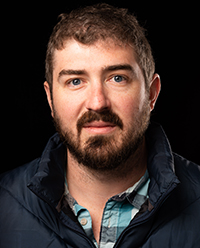
Travis Weiland
Assistant Professor
Mathematics Education
Department of Curriculum & Instruction
Education: B.A., secondary education and mathematics, Warren Wilson College; M.A. in education, mathematics education, Western Carolina University; Ph.D., mathematics education, University of Massachusetts Dartmouth
Most recent job: assistant professor, Appalachian State University
What drew you to UH?
The diversity of Houston and the University’s commitment to issues of equity were two of the main draws. The location is ideal for the research I do on statistical literacy in K – 12 education systems, with a wide range of schools to work in and a high-quality teacher preparation program at UH. I could tell from my interactions with faculty and staff that UH and the Department of Curriculum & Instruction are supportive environments.
What are your research interests/areas of expertise?
My research is focused on issues of equity and social justice in mathematics and statistics education. I am currently investigating how to create learning experiences for pre-service and in-service teachers to interrogate and transform their world through the practice of statistics and to teach statistics in transformative ways.
Can you share a little about your background?
I grew up in upstate New York before moving to Asheville, N.C., to start my career in education. I taught high school mathematics in Asheville for five years before deciding to go back to school to get my Ph.D., during which time I started teaching teacher education courses.
What do you do to unwind after a long day?
I love to get outside to walk and hike at the end of a long day, as well as cooking.
How has COVID-19 impacted you as an educator?
I have seen the power of what online teaching provides and how much I can accomplish. I find there are significant issues of equity around education that have worsened during COVID-19, such as student access to technology and internet. Teachers are being asked to teach in ways that the education system was not designed for and in ways they were not trained to teach. The pandemic has made me rethink about issues that are important to prepare teachers for.
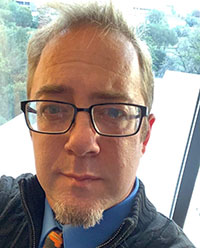
Mikel Cole
Associate Professor
Bilingual and ESL Education
Department of Curriculum & Instruction
Education: B.A., philosophy, Baylor University; M.Ed., Chaminade University; Ph.D., language,
literacy and culture, Vanderbilt University
Most recent job: associate professor, Clemson University
What drew you to UH?
Texas has a strong history of providing bilingual education and the faculty at UH are doing fantastic work in this area. I taught within Houston ISD for six years at Poe Elementary, and I am excited to be back in familiar settings. Finally, my daughter lives in Clear Lake, and I wanted to be closer to her.
What are your research interests/areas of expertise?
I study emergent bilingual students in K – 12 settings and am particularly interested
in the development of teaching methods and practices that utilize linguistic and cultural
strengths in the classroom. I engage in the preparation of teachers to provide equitable
and effective instruction for these students, as well as the intersections of language
policy with classroom instruction. My recent work is focused on finding ways to provide
language and literacy services inside immigrant detention facilities.
Can you share a little about your background?
I was born in Fort Smith, Arkansas, where I literally lived on the banks of the Arkansas River and lived a very Tom Sawyer-esque life. I was a classroom teacher for 10 years, teaching mostly in elementary settings in both Montessori and public school classrooms. I also lived in Taiwan for a year, where I taught English as a Foreign Language, and worked at the University of Houston-Downtown’s Intensive English Program, where I taught English to international students from around the world.
What do you do to unwind after a long day?
I enjoy cooking, and often unwind in the kitchen while listening and singing to some of my favorite music. On the weekends, I love to hike and camp or really just spend time in a place with no pavement. When possible, traveling is a real love of mine, and getting lost in a place where I don’t know the language is my idea of adventure!
How has COVID-19 impacted you as an educator?
It has changed what my teacher preparation courses look like, and it has limited access
to schools and immigrant detention facilities where my research occurs.
— By Lillian Hoang and Alberto Huichapa
— Photos courtesy of the faculty members